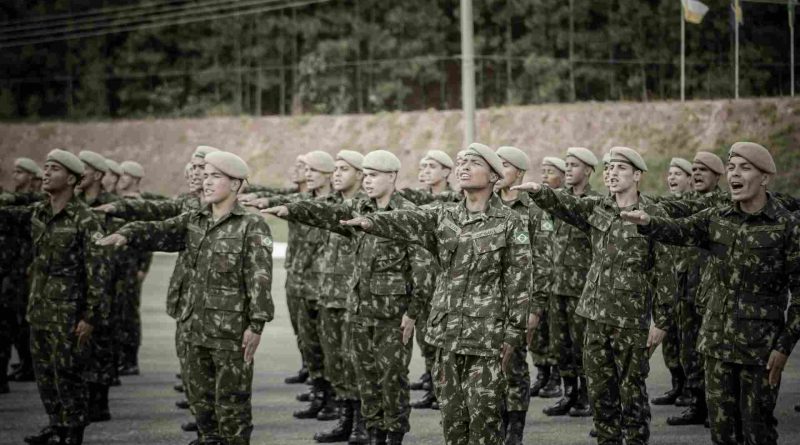Discover the Remarkable Danish Frogmen who Recently Defeated Pirates in the Atlantic
In a remarkable but often unnoticed event toward the end of 2021, the Atlantic Ocean became the stage for a demonstration of the lethal prowess of Denmark’s Frømandskorpset, also known as the Frogman Corps, akin to the renowned US Navy SEALs.
During November, while conducting an anti-piracy patrol in the Gulf of Guinea off the coast of Nigeria, the Danish frigate Esbern Snare received alerts of suspicious activity in the vicinity.
Responding swiftly, the Danish vessel located a small, agile motorboat with nine individuals aboard, shadowing merchant ships in the region.
Upon confirming the suspects as pirates, the Esbern Snare promptly dispatched its contingent of Frogmen via rigid-hull inflatable boats to intercept the motorboat.
As they closed in, the Danish forces ordered the pirates to halt, resorting to warning shots to facilitate the boarding by the elite operatives.
In the ensuing exchange, the pirates retaliated, prompting the Danish commandos to return fire, resulting in the neutralization of four pirates and the injury of one, without any casualties on the Danish side. The motorboat succumbed to the confrontation, sinking shortly after, with the pirates apprehended by the Esbern Snare.
This incident offered a rare glimpse into the operational capabilities of one of the world’s most discreet special-operations units.
A select few
The selection and training regimen for aspiring Frogmen stand as one of the most rigorous globally, boasting an exceptionally high attrition rate.
Out of the hundreds of candidates who volunteer annually for the course, only a handful successfully navigate the arduous journey to join the ranks of the Frogmen. Since its establishment in the late 1950s, the unit has seen fewer than 400 members.
The path to becoming a naval commando spans approximately nine grueling months, drawing inspiration from the training and selection processes of the US Navy Basic Underwater Demolition/SEAL and the UK Special Boat Service.
An integral component of this journey is the notorious “Hell Week,” where candidates are pushed to their physical and mental limits, alongside comprehensive instruction in combat diving, airborne operations, small-unit tactics, and terrestrial warfare.
Maritime counterterrorism and beyond
Despite its modest size within the Danish special-operations landscape, the Frogman Corps shoulders a diverse array of mission responsibilities, encompassing maritime counterterrorism, special reconnaissance, underwater unconventional warfare, direct action, close protection, and visit, board, search, and seizure operations.
Notably, the Danish commandos have earned a reputation for their proficiency in anti-piracy endeavors, exemplified by the successful recapture of a hijacked merchant vessel in 2010.
As a NATO member, Denmark enjoys close collaboration with US special-operations units, frequently engaging in joint exercises with Army Green Berets, Air Commandos, Navy SEALs, and Navy Special Warfare Combatant-Craft operators.
Danish Frogmen are recognized as elite combat divers, with whom we regularly engage in training exercises. Despite their small numbers, their resilience and expertise consistently impress young Green Beret combat divers during joint training activities,” remarked a retired Army Green Beret, speaking on condition of anonymity.
Furthermore, Frogmen undergo training in various US special-operations and conventional courses, including the US Army Airborne School, Army Ranger School, and Special Forces Underwater Operations School.
Danish special-operations forces have also demonstrated their mettle in Afghanistan, earning accolades for their professionalism, discipline, and operational effectiveness.
Honorable heritage
Established in 1957, the Danish Frogman Corps inherits its legacy from World War II and the valiant exploits of British special-operations units against Axis forces in North Africa and Europe.
In 1941, British officer David Stirling founded the Special Air Service (SAS) to undertake clandestine operations and strategic reconnaissance deep behind enemy lines in North Africa.
Such was the unit’s impact that, at one juncture, it had decimated more Axis aircraft on the ground than the Royal Air Force managed. This success prompted the British military to conceive a maritime equivalent of the SAS.
The concept, proposed in 1940 by another visionary British officer, persuaded the Royal Navy to establish a special-operations unit tasked with confronting the Nazi threat along Europe’s coastlines and rivers.
Initially named the Special Boat Section and later rebranded as the Special Boat Service (SBS), the unit primarily operated in the islands and coastal regions of Italy and Axis-occupied Greece.
Following significant casualties during operations in 1942, the SBS merged with the SAS.
A unique aspect of World War II saw soldiers from occupied nations serving in British ranks. Among them, Major Anders Lassen, a Danish national, stands out as the sole foreign recipient of the Victoria Cross, the highest British military decoration, during the conflict.
Upon its inception in 1957, the Frogman Corps assimilated the wisdom and experiences of veterans who served with the SBS, drawing inspiration and assistance from the US Underwater Demolition Teams, the precursors to the modern Navy SEAL Teams.

